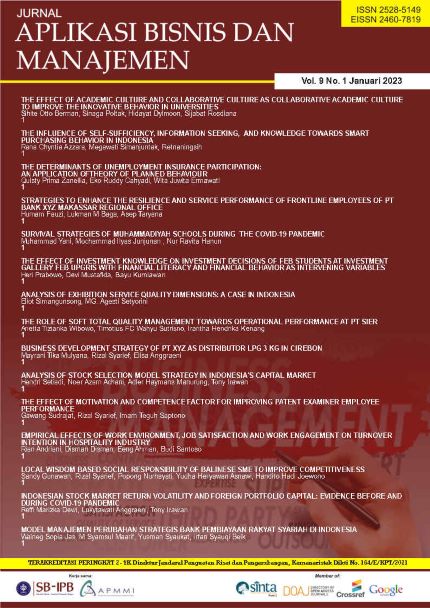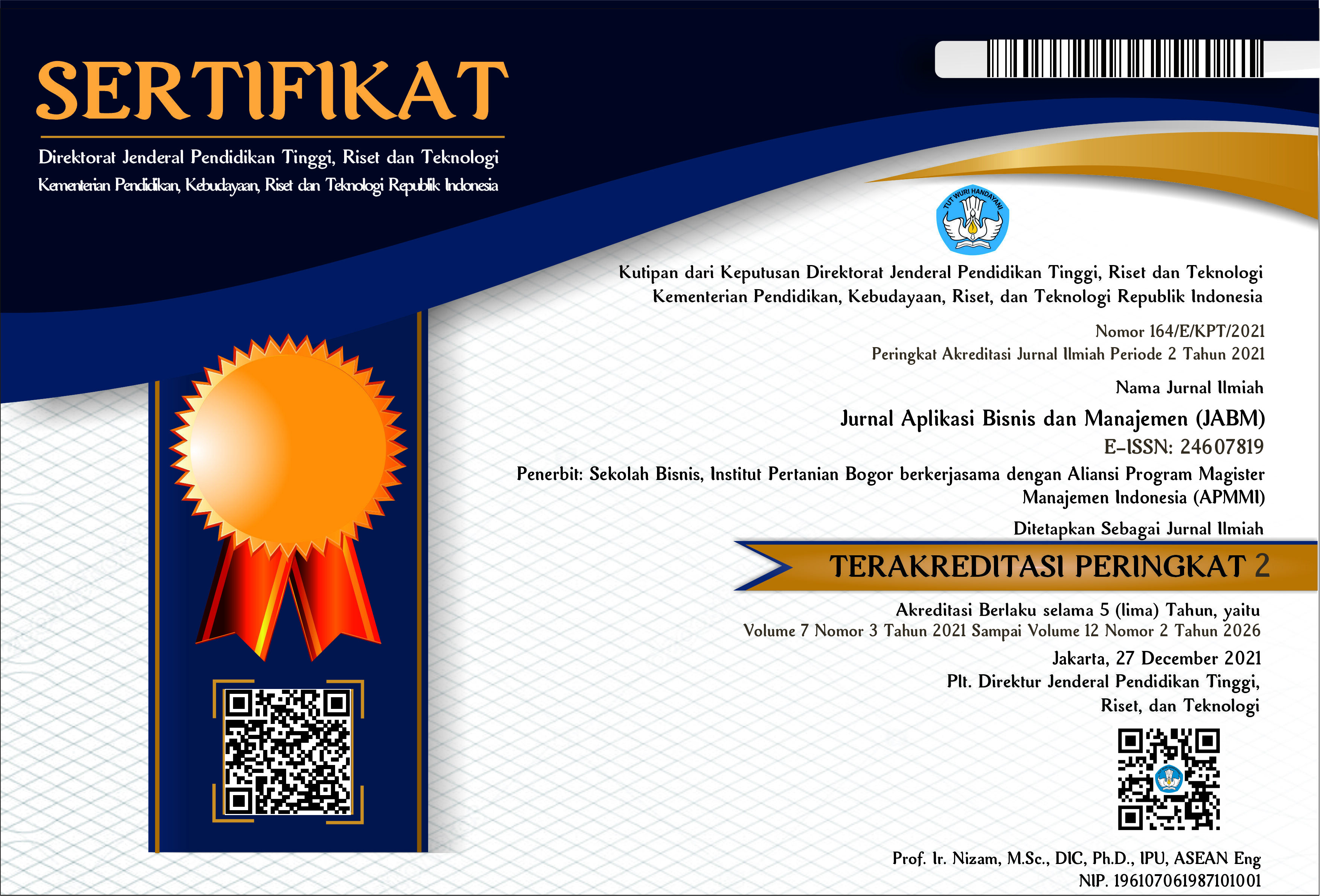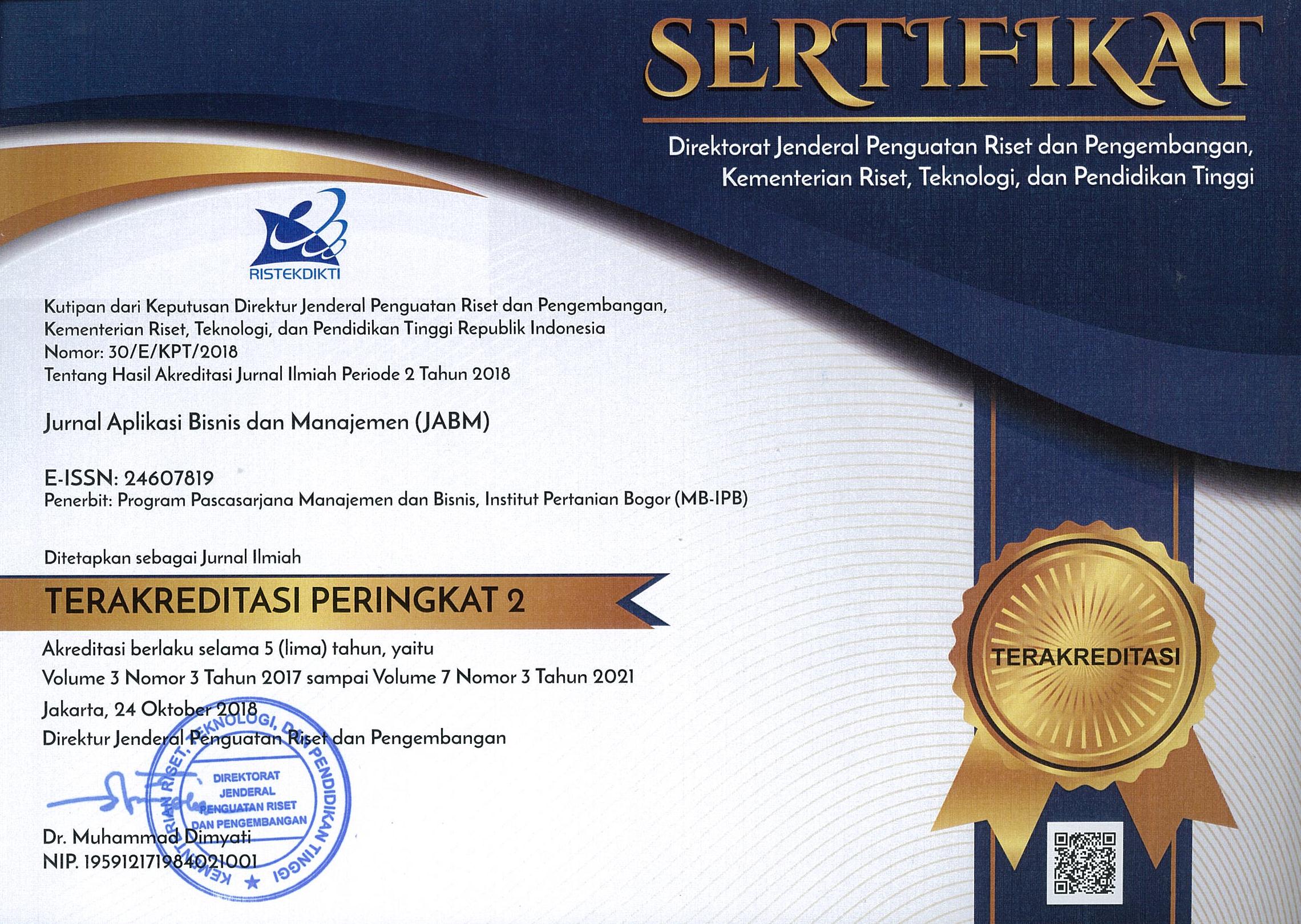Faktor yang Memengaruhi Niat Mengadopsi Jasa Fixed Broadband Pada Generasi Y & Z
Abstract
This study analyzes various factors that influence the intention to adopt or re-subscribe to fixed broadband services in generations Y & Z through utilitarian outcomes, hedonic outcomes, relative advantages, service quality, primary influences, secondary influences, cost, facilitating conditions resources, self-efficacy, and marketing mix, understand the characteristics of respondents and formulate managerial implications to increase the intention to adopt fixed broadband in generations Y & Z. This study involved 100 respondents in Y & Z generations, over 16 years of age and able to influence the decision to adopt fixed broadband, through voluntary sampling technique. Data were collected through questionnaires distributed online. The analysis in this study uses Partial Least Square Structural Equation Modelling (PLS-SEM). Results indicates that utilitarian outcomes, hedonic outcomes, relative advantage, service quality, secondary influences, and marketing mix have a significant positive effect on fixed broadband intention, while cost has a significant negative effect fixed broadband intention. Primary influences, facilitating conditions resources and self-efficacy do not have a significant influence on fixed broadband intention. Managerial implications that can be done by fixed broadband providers to increase adoption intentions are to continuous innovation, updating & adopting new technology, improvement in service quality and increasing marketing activities on the internet.
Keywords: fixed broadband intention, marketing mix, MATH model, Y & Z generation








